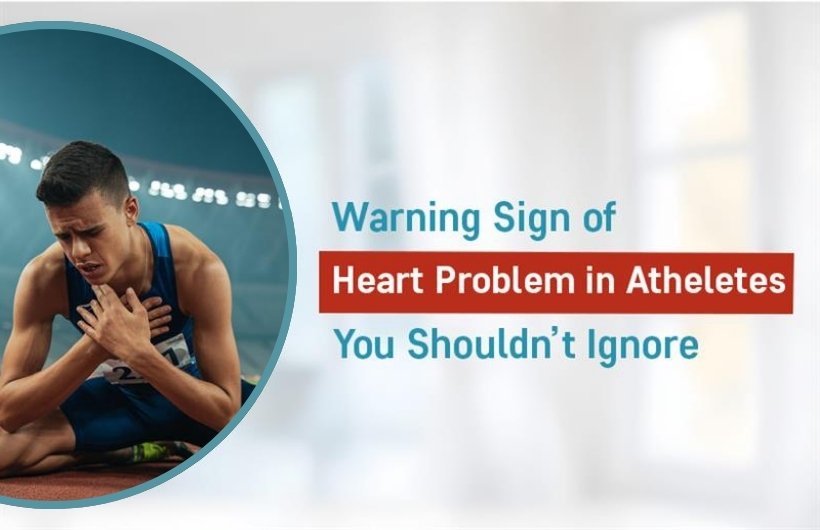Heart-related complications in young athletes are rare but real. Despite being physically active, fit, and regularly training, many young sportspersons may harbor undiagnosed cardiovascular conditions. Tragically, these issues often go unnoticed until a serious event occurs, sometimes on the field itself. In this blog, we’ll explore the most critical warning signs of heart problems in young athletes, why early detection is crucial, and how consulting a qualified cardiologist in Ahmedabad, such as Dr. Jignesh Patel, can make all the difference.
Why Heart Problems in Young Athletes Are a Growing Concern
Contrary to popular belief, athletes are not immune to cardiac issues. In fact, high levels of physical exertion can sometimes unmask underlying conditions. These may include:
- Hypertrophic Cardiomyopathy (HCM)
- ARVC (Arrhythmogenic Right Ventricular Cardiomyopathy)
- Congenital heart medical conditions
- Myocarditis (heart muscle inflammation)
- Abnormalities of the coronary arteries
When not detected, such conditions may result in sudden cardiac arrest (SCA), which is one of the major killers of athletes under 35.
Signs of Danger of Heart Disease among Sportspersons
1. Shortness of Breath of Unknown Cause
When a young athlete experiences problems with breathing, even at an easy/moderate level, especially when it was not an issue before, it might serve as a sign of decreased cardiac output or early signs of heart failure.
2. Discomfort or Discomfort when Exercising
A typical warning sign is the so-called chest pain that is experienced when a person does some exercise and disappears when the person rests. It may indicate either myocardial ischemia or defective coronary arteries.
3. Fainting or Near-Fainting (Syncope)
Vice versa, unconsciousness during or at the end of training is a warning sign. This might be an indication of a heart rhythm disorder, and it requires urgent medical attention.
4. Irregular Heartbeat or Heart Fluttering
The financial situation has worsened considerably since the 1980s.
5. Excessive Fatigue
Fatigue that is not commensurate with the extent of training or the fatigue that lingers longer than it should may symbolize that the heart is not pumping in an efficient manner.
6. HP (Even when Young)
Potential stress on the heart because of persistently high blood pressure in adolescents may increase the risk of heart disease.
7. Puffiness in the legs, ankle, or feet
It is a very common indicator of a stagnated movement or stagnation of fluids, which can be a potential sign of heart failure, even among physically active people.
What Causes Athlete Heart Problems?
Many conditions are genetic or congenital, meaning they’re present from birth but remain hidden until triggered by intense physical activity, which can be the main cause of an athlete’s heart problems.
Common culprits include:
- Inherited cardiomyopathies like HCM
- Electrical disorders such as Long QT Syndrome
- Undiagnosed congenital heart defects
- Viral infections that lead to myocarditis
These can all disrupt the heart’s ability to pump blood efficiently, especially under physical stress.
Early Detection Is Critical: Don’t Wait for Symptoms
Even when an athlete appears healthy, heart screening can uncover silent threats. Most conditions can be detected through:
- Echocardiography
- Electrocardiogram (ECG)
- Stress tests
- Cardiac MRI
- Holter monitoring (24-hour ECG)
Dr. Jignesh Patel, one of the most trusted heart problem specialists in Ahmedabad, regularly conducts athlete cardiac screenings to detect early signs of disease before symptoms appear.
What Parents and Coaches can do
The first prevention begins with awareness. These are the methods of discouraging the risks:
- Be aware of family history: Any heart disease in a family history is important to determine by screening.
- Do not discount symptoms: Fatigue or dizziness may not only be a case of overtraining.
- Eventually, demand pre-participation exams: It may be possible to grab initial warning signs through basic ECG tests.
- Adopt an open communication: Athletes are supposed to express themselves in any form of discomfort.
When should you see a cardiologist?
Mentioned above are some of the possible symptoms that you can monitor, or in fact, may simply have a feeling that something is wrong; in this case, you should meet with a specialist.
In case you happen to be in Gujarat or the surrounding areas, you may visit Dr. Jignesh Patel, who is a well-established cardiologist doctor near you in Ahmedabad and is an expert when it comes to managing heart health in younger sports athletes. His patient-oriented style and the cutting-edge diagnostic methods have seen him assist hundreds of families to ensure that their children remain healthy and fit in the field.
Final Thoughts
Even being an athlete does not guarantee against heart issues. But in fact, it is dangerous to some young athletes to push their limits before they are screened. Being aware of the body’s pleading messages before heart disease is a life and vocational saver.
Symptoms should not be overlooked. Do not think it is only fatigue. Be screened, be informed, and act at an early stage.
Book a Heart Screening with Dr. Jignesh Patel
If you’re a parent, coach, or athlete concerned about heart health, don’t wait for the signs to escalate. Schedule a comprehensive heart evaluation with Dr. Jignesh Patel, one of the most trusted cardiologists in Ahmedabad.






